Earth
Sign up for our newsletter
We summarize the week's scientific breakthroughs every Thursday.
-
 Environment
EnvironmentCrops take up drugs from recycled water
Plants irrigated with recycled wastewater can soak up tiny amounts of pharmaceutical compounds but what this means for human health is unclear.
By Beth Mole -
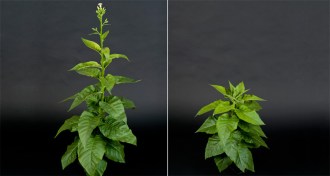 Plants
PlantsBorrowed genes raise hopes for fixing “slow and confused” plant enzyme
Inserting some bacterial Rubisco chemistry into a plant might one day boost photosynthesis and help raise crop yields.
By Susan Milius -
 Earth
EarthShrinking ancient sea may have spawned Sahara Desert
The Saharan Desert probably formed 7 million years ago as the ancient Tethys Sea, the forerunner of the Mediterranean Sea, shrank.
-
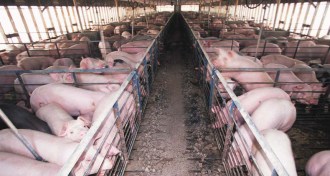 Agriculture
AgricultureDrug-resistant staph can cling to farm workers for days
Agricultural exposure to staph bacteria could threaten the health of laborers and people who live near farms, a study of pig farm workers suggests.
By Beth Mole -
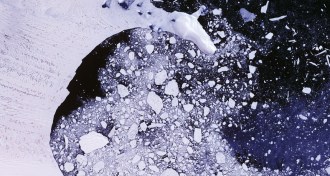 Earth
EarthWarming alone triggered Antarctic ice shelf collapse
Warming surface temperatures, not an unstable foundation, probably doomed Antarctica’s Larsen B ice shelf.
-
 Climate
ClimateGreenhouse gases reached new records in 2013
Levels of carbon dioxide in the atmosphere rose more last year than any other year since 1984, according to a September 9 report by the World Meteorological Organization.
-

-
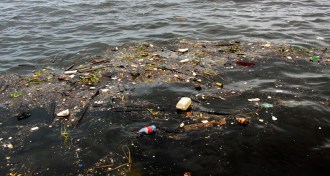 Oceans
OceansPlastic may take unexpected routes to marine garbage patches
By redefining ocean boundaries, researchers offer new insight to how litter moves through the oceans and who’s to blame for the floating clumps of trash.
By Beth Mole -
 Physics
PhysicsUnusual turbulence seen along North Carolina coast
Storm winds in Currituck Sound, North Carolina, may have created just the right conditions for scientists to see a rare type of turbulence in ocean waves for the first time.
-
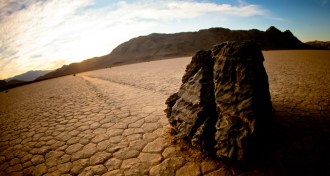 Earth
EarthDeath Valley’s sailing stones caught on the move
Mysterious sailing stones wandering around Death Valley are powered by ice and wind.
-
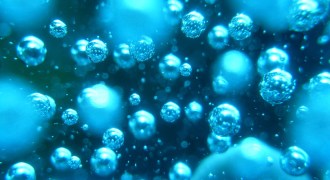 Materials Science
Materials ScienceGreener water splitter for hydrogen fuel designed
A new gadget that runs on a single AAA battery might truly reduce the carbon emissions from hydrogen fuel cell production down to zero.
-
 Earth
EarthSometimes value lies deep below the surface
Stories on jellyfish, Ebola, carbon capture's future and heart disease's past reveal how crises old and new often lead to science's healthiest advances.
By Eva Emerson